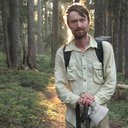Andrew McDavid
I am an assistant professor at the University of Rochester in the Biostatistics and Computational Biology department. I received my PhD in statistics from the University of Washington in June 2016.
I am interested in methods and applications of single cell gene expression assays. There is great hope, for good reason, that measuring expression profiles in single cells will aid in immunological and cancer research, and provide new insight in cellular biology (though it still only provides a cross-sectional sample of cells at various points in their lifespan and cell cycle.) However, the biochemical, computational and statistical challenges are sizable.
I am focusing on the combinations of all three. Through the use of unique molecular identifiers, it may be possible to better understand the biases and sources of variability current protocols introduce. I am writing
- Graphical modeling and gene-gene interaction networks
- Clustering and distance measures for zero-inflated data
- Gene-enrichment analysis
- Borrowing strength and regularizing vector generalized linear models through empirical Bayes' procedures
- 2nd-order univariate phenomena, such as exceptional stability or heterogeneity of expression (and how this can be identified given differing levels of technical variability).
Equivalent Measures

That night, Goose explained to me that if you have a good day, it's all on you. If you have a bad day, you made it too. Nature has no favorites and knows no intrinsic measure.
Equivalent probability measures assign null probability to the same events. Use one just as easily as the other.
Your choice.
